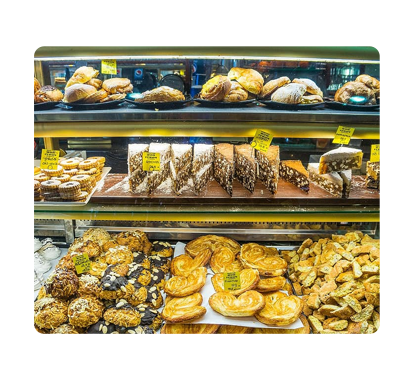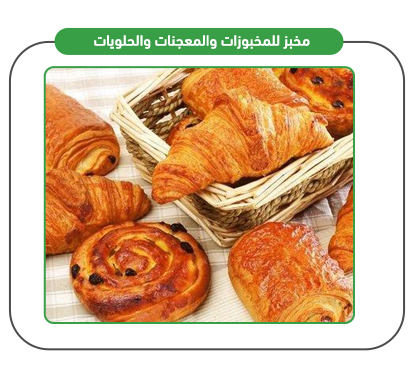It is about establishing a bakery to produce pastries, baked goods and sweets to benefit from the availability of high-quality raw materials at reasonable prices and with the aim of obtaining a major share in the market and achieving benefit from several economic and marketing opportunities through the use of the best means of technology with the highest specifications and the best levels of quality so that it can compete with local producers in order to meet the demand and the increasing volume of consumption of the product as it is a product with many uses and represents the largest use in the individual sector, restaurants and hospitals

It is about establishing a bakery to produce pastries, baked goods and sweets to take advantage of the availability of high-quality raw materials at reasonable prices, with the aim of obtaining a major share in the market and benefiting from several economic and marketing opportunities. This is done by using the best technology with the highest specifications and best quality levels so that it can compete with local producers. This is in order to meet the demand and increasing consumption of the product, as it is a multi-use product and represents the largest use in the individual, restaurant and hospital sectors. The bakery project targets many targeted sectors such as hotels, restaurants, embassies, fast food restaurants, supermarkets, sports clubs, police clubs, armed forces and security services, wedding and event halls, festivals, women’s associations and consumers who prefer to obtain these products fresh and directly from the producers to serve them to their visitors during banquets. Consumers during family trips. Consumers during Eid al-Fitr and Eid al-Adha.



Use of Technology
Availability of specialized technical staff.
Highly experienced management.
Highly qualified and experienced workers.
Supervision of product quality and operational processes.
Having a strong integrated publicity plan.
Executive summary
Study project services/products
Market Size Analysis
Risk Assessment
Technical study
Financial study
Organizational and administrative study

Service sector in GCC countries
According to the macroeconomic theory of sectors, the economy is divided into three main and large sectors: the first; – is the sector that is based on collecting raw materials and includes mining companies, timber companies, oil exploration companies, in addition to agricultural and fishing industries. The second sector; is the sector that depends on goods and their sale, such as: (car manufacturing, furniture, clothing trade… etc.). As for the third sector, known as the “services” sector; it is the sector responsible for providing and producing services, essentially relying on intangible things, such as: entertainment, health care, transportation, hospitality, restaurants, etc. This theory believes that the more advanced countries are, the more their economies are based on the third sector, unlike primitive countries, which rely mostly on the first sector (the United States of America, for example, the service sector constitutes 85% of its economy).
Kingdom of Saudi Arabia:
The State of Qatar:
Kuwait:
United Arab Emirates:
Sultanate of Oman:
Global Service Sector
The service sector is the major contributor to the world’s gross product; It alone accounts for more than three fifths of this output. The sector does not rely on the production of tangible goods such as automobile and furniture, but rather on the provision of intangible services such as banking, medical care, transportation, hospitality, leisure, etc. The value of the sector market was estimated in 2020 at USD 10,814.49 billion and rose to USD 11,780.11 billion in 2021. The market achieved a CAGR of 8.9%. After recovering from the effects of the coronavirus pandemic, global market experts expect the sector’s market to reach US $ 15683.84 billion by 2025, bringing the market to a CAGR of 7% in the coming years.
